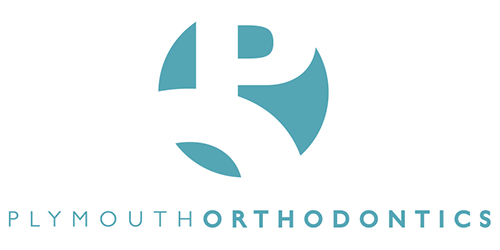When should my child see an orthodontist?

What is the best time to begin orthodontics?
Years ago dentists thought that orthodontics was only possible after all the permanent teeth were in, or around 12 to 13 years of age. We now know that this is not true, and in many cases waiting until all teeth have erupted may be too late or may make treatment more difficult.
While Plymouth Orthodontics can improve smiles at any age, there is usually a best age to begin treatment to achieve maximum improvement with a minimum amount of time and expense. The American Association of Orthodontists (AAO) recommends that a child’s first visit to an orthodontist take place when an orthodontic problem is first detected. In all cases, the AAO recommends that every child visit an orthodontist by no later than age 7. Although interceptive orthodontic treatment is not always indicated, careful observation can establish the best timing of orthodontic care for your child.
What are the benefits of early screening?
Early screening not only provides timely detection of orthodontic problems, it presents more opportunities to provide effective orthodontic treatment. Timely intervention can greatly guide growth and development and prevent more serious problems from occurring. For example, careful removal of selected primary (baby) teeth can temporarily borrow space for successful eruption of adult teeth. When interceptive treatment is not needed, Plymouth Orthodontics can carefully monitor the growth and development of your child and begin treatment at the appropriate time. Either way, a timely screening will give you the peace of mind that gives us all something to smile about.
Why is age 7 an ideal time for screening?
- The back bite is established when the first adult molars erupt, usually before age 7. Plymouth Orthodontics can evaluate the front to back and side-to-side (transverse) relationships of the bite at this time.
- The presence of erupting incisors indicates possible crowding, overbite, open bite, gummy smiles, and habit patterns. Timely screening gives the doctor at Plymouth Orthodontics more chances to create an awesome smile.
- A timely screening helps parents and patients get to know our doctors, as well as the staff at Plymouth Orthodontics. Even if immediate treatment is not indicated, we can provide detailed information on what may be needed in the future and appropriate treatment timing.
What are the advantages of early treatment?

- Preserve or gain space for erupting and unerupted teeth
- Create facial balance by influencing jaw growth
- Reduce the risk of trauma to protruding front teeth
- Reduce the need for permanent tooth removal
- Simplify treatment time with full braces
- Improve the self-image of our children
What early warning signs may indicate your child should have an orthodontic examination?
- Early or late loss of teeth
- Protruding teeth
- Difficulty in chewing or biting
- Teeth that meet in an abnormal manner or don’t meet at all
- Mouth breathing
- Facial imbalance
- Finger sucking or other oral habits
- Jaws that protrude or retrude
- Crowding, misplaced or blocked out teeth
- Grinding or clinching of the teeth
- Jaws that shift
- Speech difficulty
- Biting the cheeks
Since children are growing rapidly, they can benefit enormously from the first phase of orthodontic treatment because specific appliances can be prescribed that direct the growth of their upper and lower jaws toward an ideal relationship. Thus, a good foundation can be established providing adequate room for eruption of all the permanent teeth.
